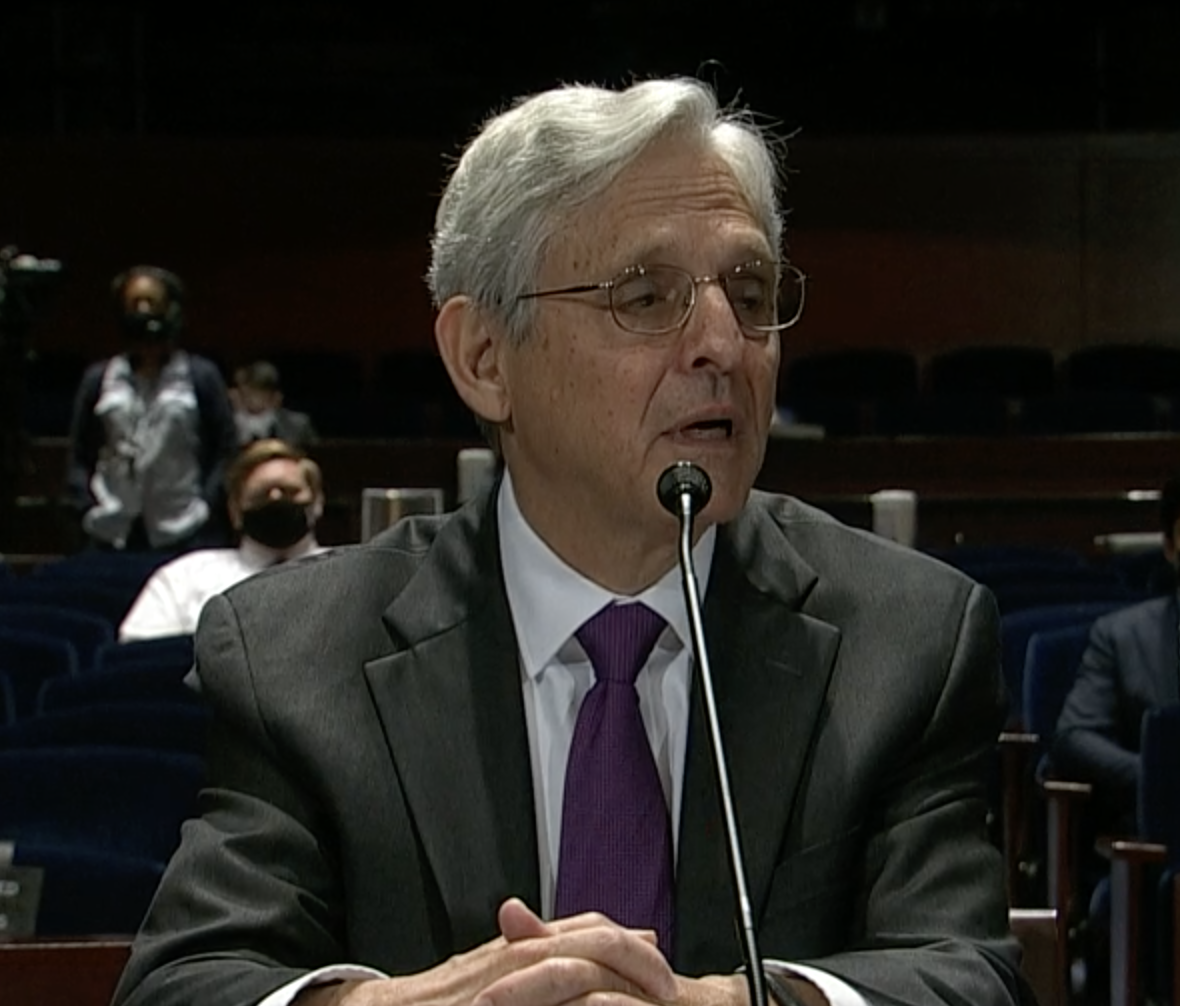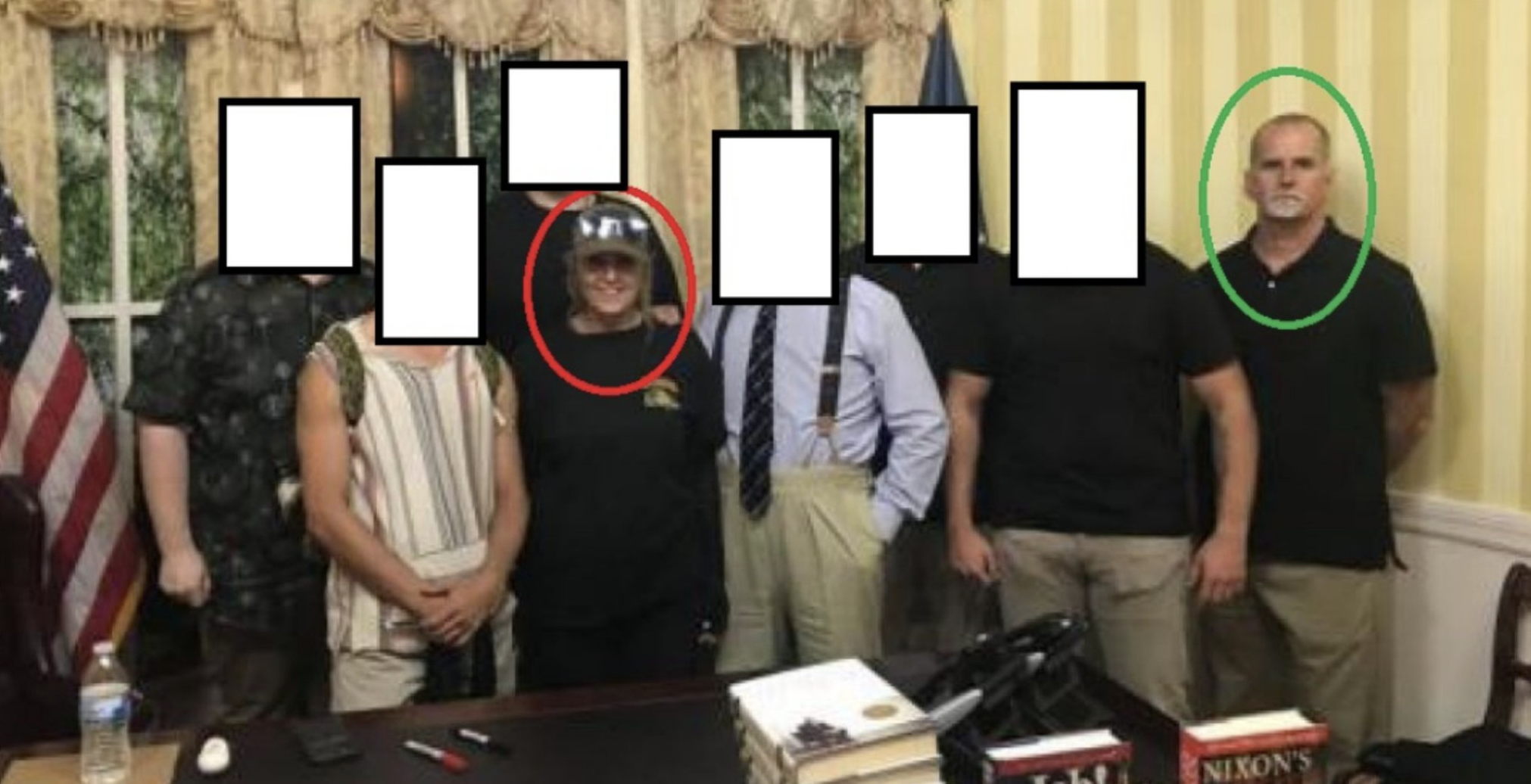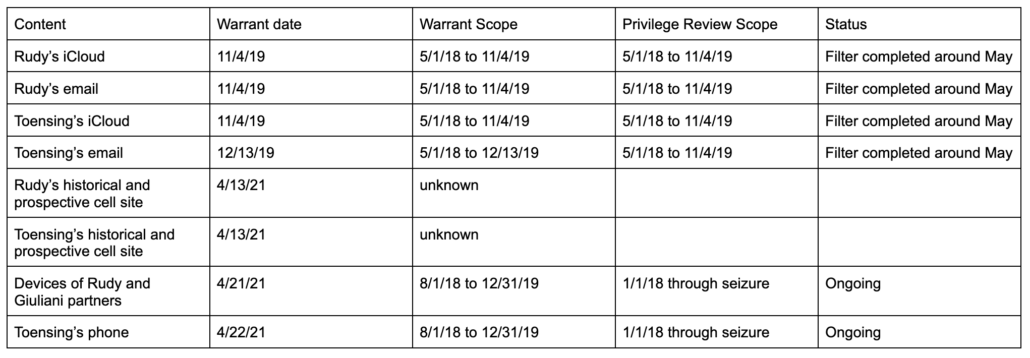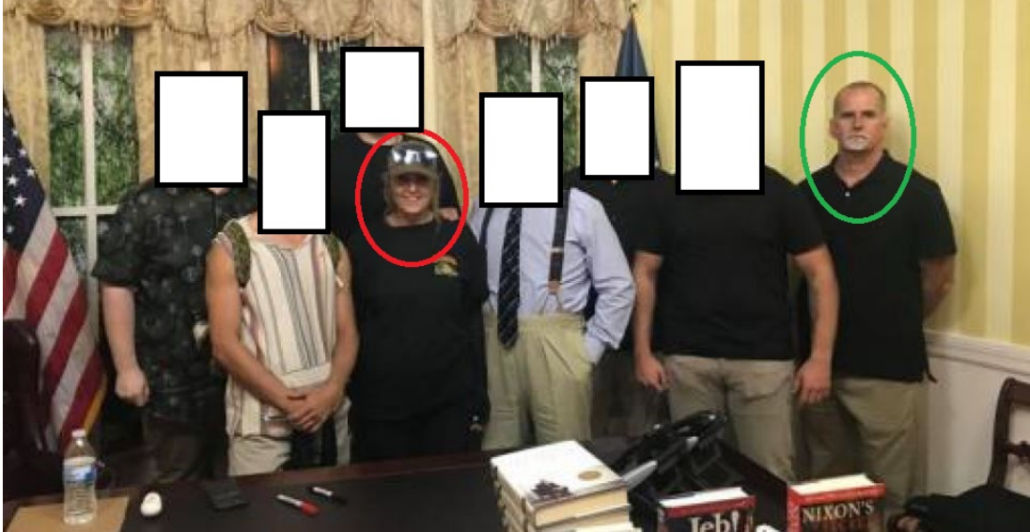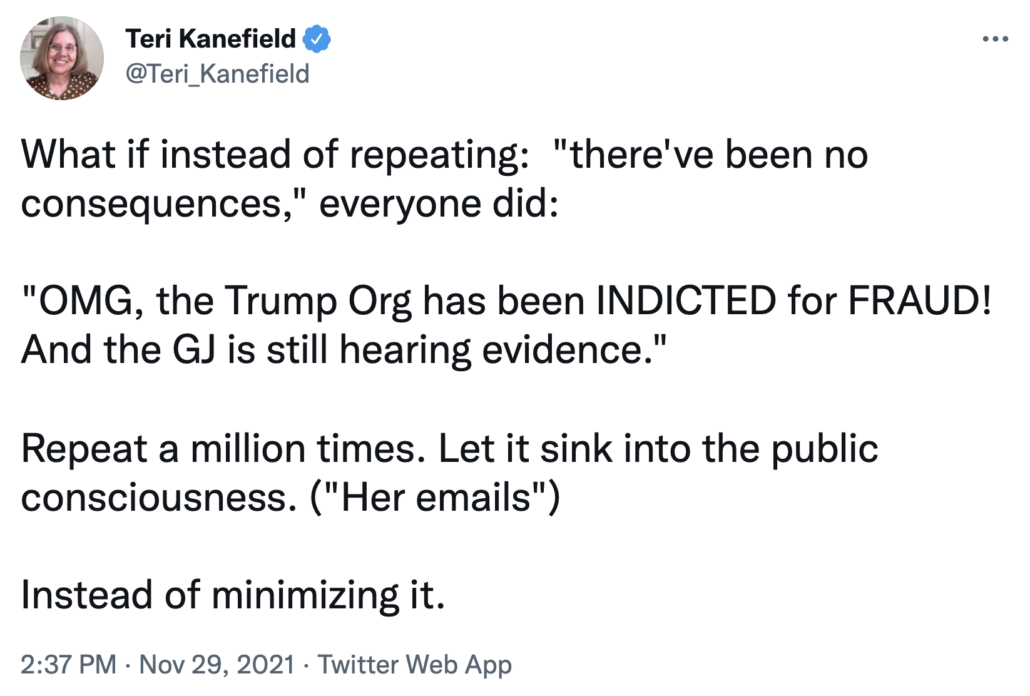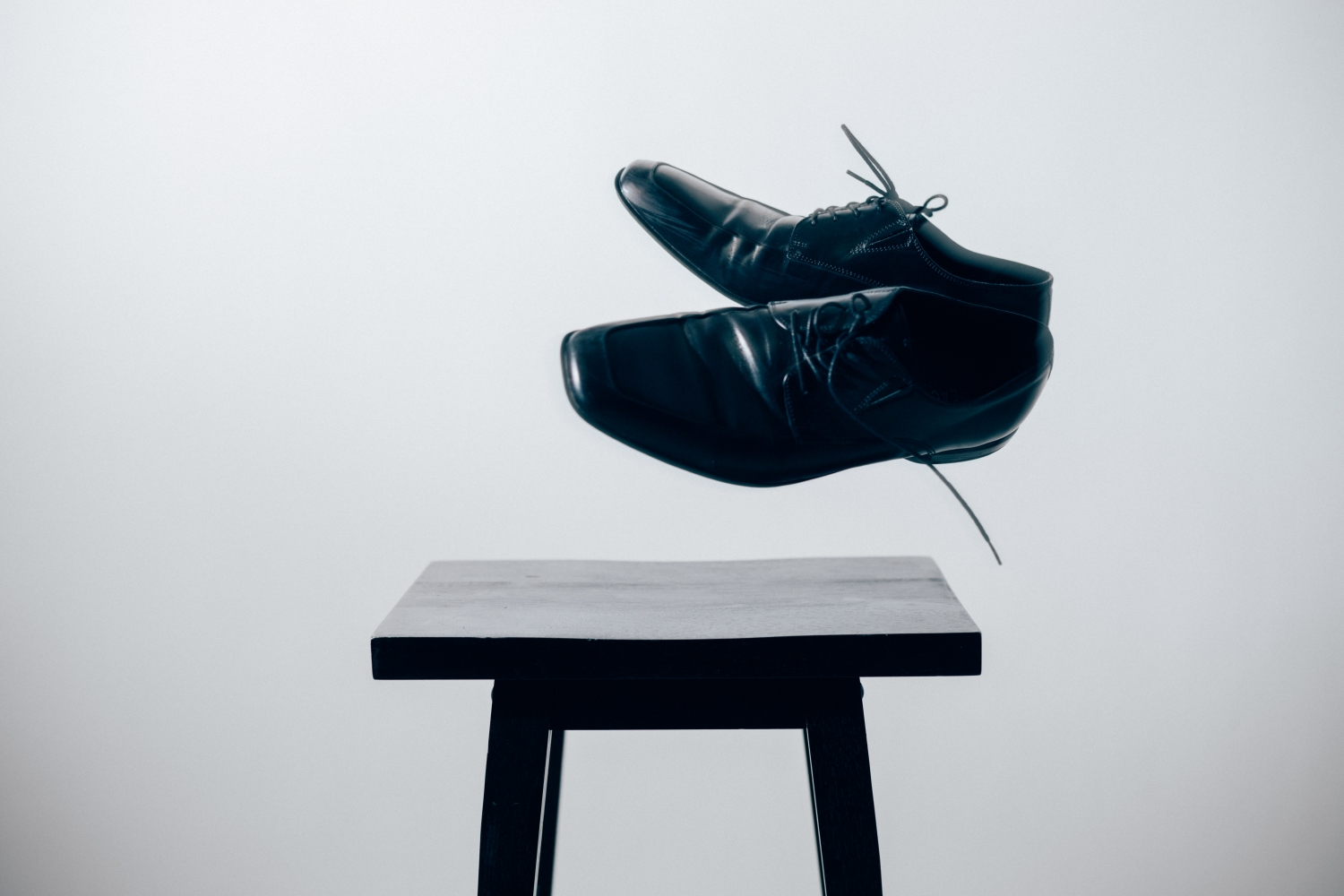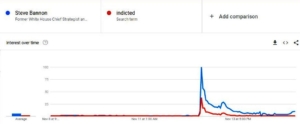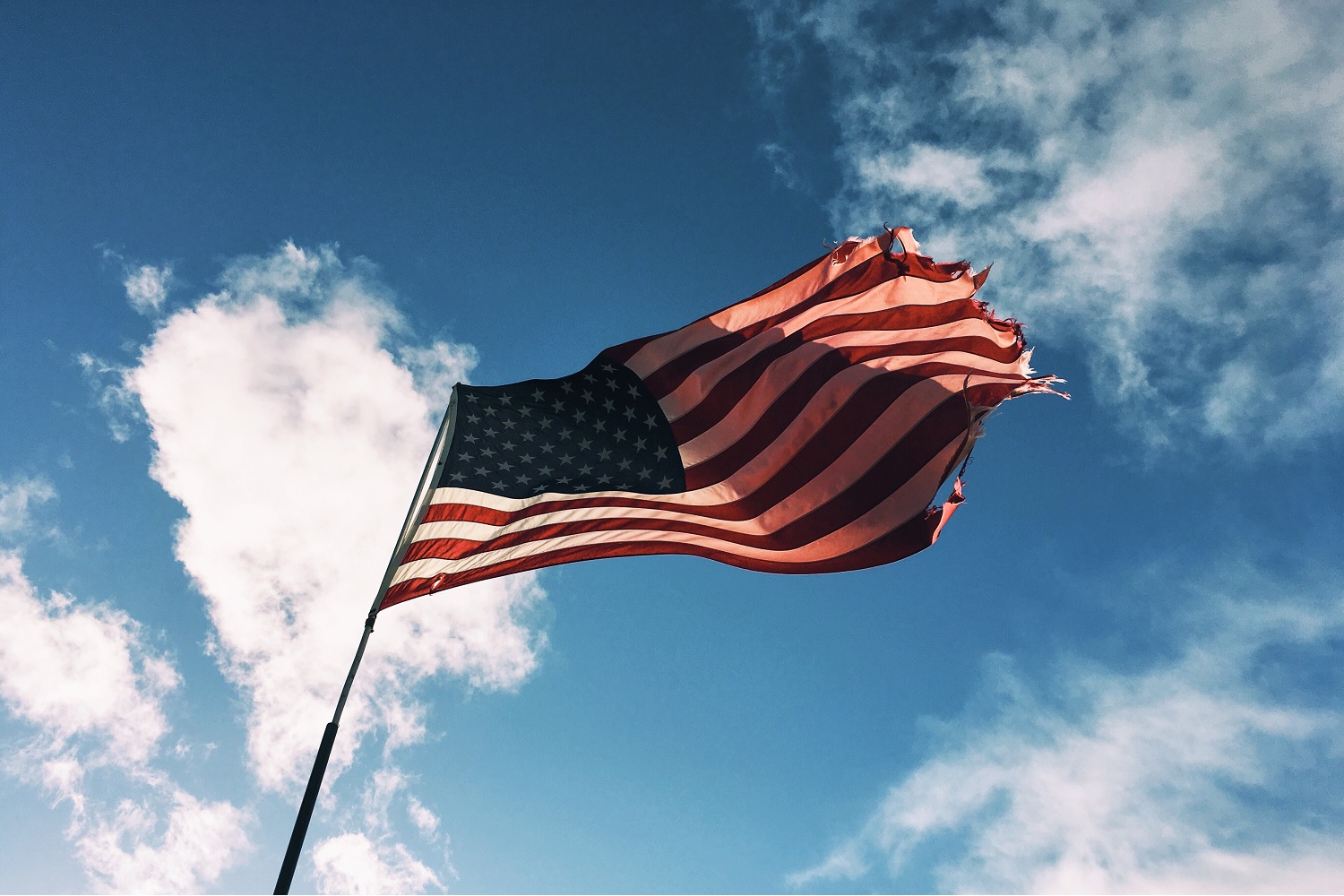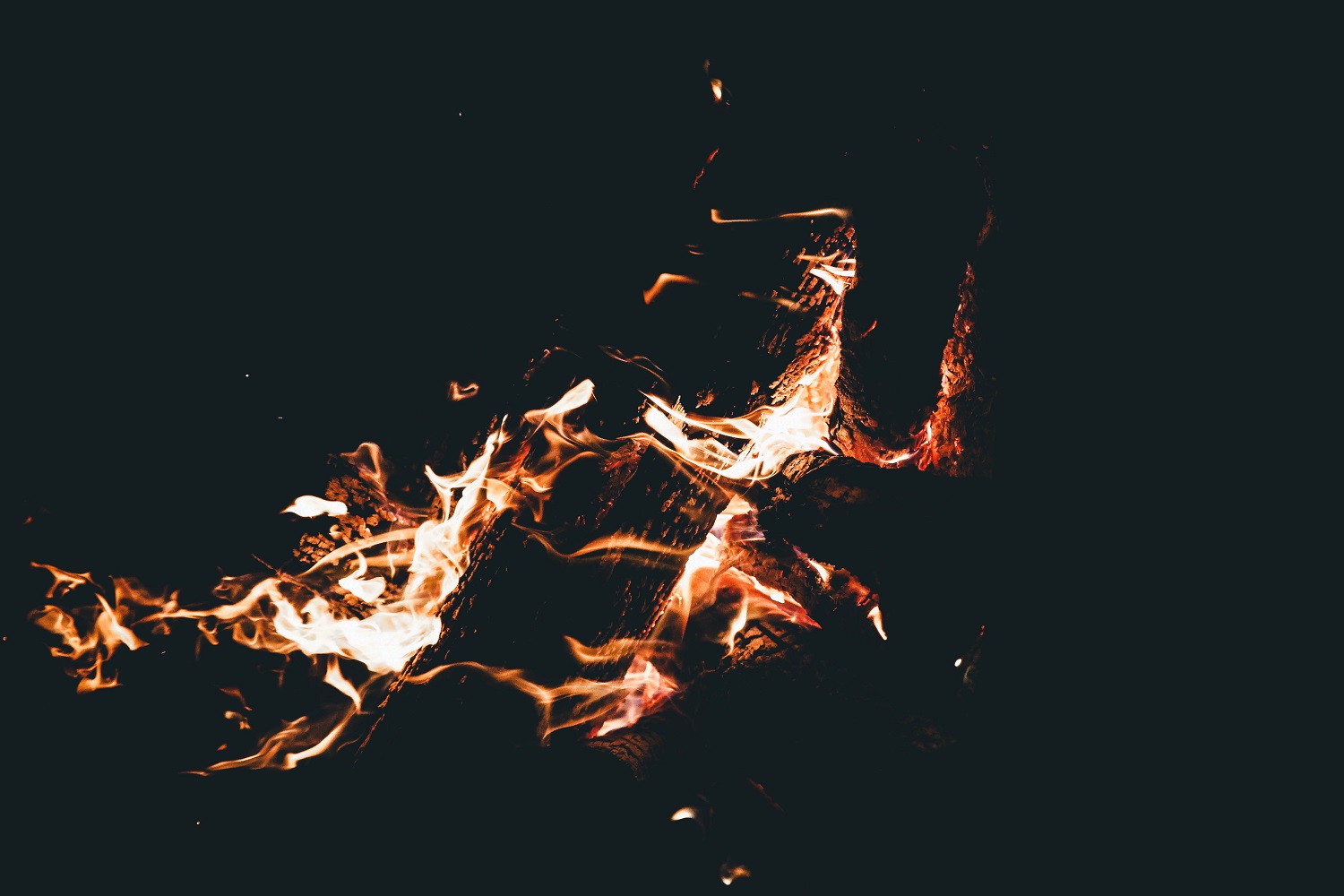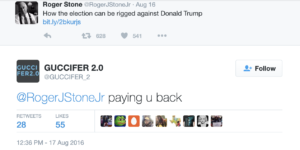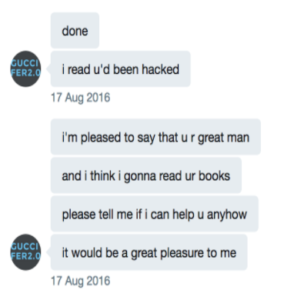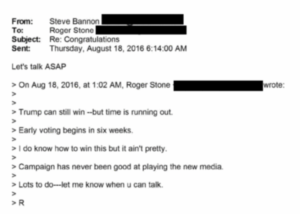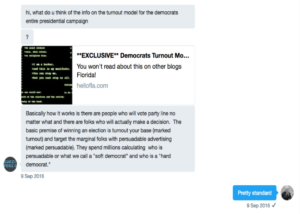Why It Would Be Counterproductive To Appoint a Special Counsel to Investigate January 6
I continue to get people asserting as fact that the investigation into Trump’s role in January 6 would be going better if Merrick Garland had appointed a Special Counsel.
I have yet to see calls for a Special Counsel that are not, themselves, just an extended admission that the people calling for one don’t understand the investigation. For example, in a widely shared Asha Rangappa thread in October, she claimed to present Pros and Cons like this:
Pro:
- “It’s warranted” (she didn’t say what “it” was)
- “It would signal that getting to the bottom of this is a priority for the Justice Department” (she didn’t say what “this” was)
- “It could provide for a more efficient investigation … An SC would be able to have FBI agents and prosecutors detailed to focus on this one matter”
- It would insulate Garland from political blowback; “Garland would be right to be concerned with the *appearance* of a politically motivated investigation under his direct watch”
- “The Special Counsel regulations have important formal mechanisms for reporting prosecutorial decisions (including declinations to prosecute)”
Cons:
- “It gives people who may be subjects of an investigation a ‘heads up'”
- “It creates a new space for politicization, as we saw with Mueller:”
More recently, a non-public non-expert suggested that because Merrick Garland hadn’t appointed a Special Counsel when he came in, Congress was doing the investigation that a Special Counsel was not.
I want to start from that claim — that Congress is investigating stuff that DOJ is not. It reflects a belief that even DOJ reporters have, such as in this shitty WaPo piece revealing in ¶30 that DOJ is investigating Roger Stone and Rudy Giuliani for their militia ties but then reporting as fact that DOJ “has yet to turn its attention directly to Trump and his close allies.” The things WaPo turns to before examining how — and ignoring that — DOJ is investigating Trump’s one-degree ties to the militias who managed the attack on the Capitol are:
- Whether DOJ is investigating the war room at the Willard Hotel (never mind that WaPo missed one overt way DOJ is investigating the war room)
- Whether DOJ is investigating Trump’s call to Brad Raffensperger
- Whether DOJ is investigating Trump’s threats to install Jeffrey Clark to get an Acting Attorney General more amenable to claiming voter fraud occurred
Of those, only the call to Raffensperger (which is being investigated by Fulton County’s DA) is clearly illegal.
Special Counsels can only investigate crimes, not potential crimes not pursued
It is not clearly illegal, for example, for John Eastman to write a letter calling on Trump to pressure Mike Pence to reject the vote totals or for Peter Navarro to set up a propaganda campaign that members of Congress will point to to justify corrupt action (indeed, the latter is how lobbyists made DC run). It may not be illegal for a President to install someone who has been Senate confirmed as Acting Attorney General who will pursue his policy goals, no matter how corrupt they are; it’s not even illegal for a President to ask a Cabinet Member to lie to the public (and Cabinet Members lie a lot, sometimes for good reasons). It’s even less illegal to consider doing so but deciding not to because of the political cost of doing so, as happened with Clark. It is not even illegal to receive a plan to have the military seize voting machines, especially if you don’t pursue that plan (which Trump did not).
These things only become illegal when they are shown to be part of plan to commit a crime.
There’s the first problem with calls to appoint a Special Counsel. Much of what people want to investigate (again, Raffensperger and the fraudulent certificates are an exception) is not clearly a crime.
I have talked about how the Select Committee is investigating from the top down and DOJ is investigating from the crime scene up (in addition to investigating Sidney Powell’s potential Big Lie fraud). I’ve talked about how, as a separate co-equal branch of government, the Select Committee can more easily do things like get Executive Privilege waivers or waive Speech and Debate protections, the former of which was a challenge for Mueller’s investigation. I’ve laid out how the two investigations have already converged, first with the focus on the targeting of Mike Pence and more recently on the role of Trump’s directions serving as the motivating instruction for three different armed conspiracies, including the sedition one.
But it’s equally important to recognize that the Select Committee is also conducting the important work of investigating things that weren’t crimes, like considering but not acting on a suggestion to seize the voting machines and considering but not acting on a plan to make Jeffrey Clark Acting Attorney General (both issues Bennie Thompson addressed on the Sunday shows this morning).
A Special Counsel can’t be appointed to investigate something that is not a crime.
I realize that people have argued, starting on January 6, that Trump incited the insurrection and that’s the crime that could have predicated the Special Counsel. Bracket that idea. I’ll come back to it.
No Republican Senator is on the record opposing DC US Attorney Matthew Graves leading this investigation
As it happens, Rangappa wrote her thread on October 25, three days before US Attorney for DC Matthew Graves was confirmed on a voice vote. While Ron Johnson held up the vote for other reasons, no Republican Senator thought it important enough to register opposition to Graves to call for a recorded vote.
That means, going forward, the US Attorney overseeing the January 6 investigation can claim the support of the entire Senate. No Republican recorded their opposition to Matthew Graves overseeing the investigation into January 6.
Those asking for a Special Counsel are, in effect, saying that there would be less political blowback if Merrick Garland chose, on his own, to appoint someone to lead an investigation than if a US Attorney against whom not a single Republican recorded opposition led the investigation.
The January 6 investigation is far too large for a Special Counsel
Now consider the claim that a Special Counsel investigation would be more efficient because the Special Counsel would have a dedicated team of prosecutors and FBI agents and a dedicated grand jury. Such claims are astounding for how little awareness of the actual investigation they show.
In Merrick Garland’s recent speech, he revealed there are 140 prosecutors working on this investigation, half normally assigned to the DC US Attorney’s office (that is, people who now report to Graves), and the other half coming from other units. Some of those units are functional, with the most notable being National Security’s Terrorism prosecutors, but also Public Corruption. Far more of them are detailees assigned from different US Attorneys offices. Some of these detailees, working on the simpler cases, are doing 6 month stints, then handing off their cases. Others, including key prosecutors involved in the Proud Boys investigation, appear to be seeing the investigation through. Just as one example, there are three prosecutors on the case against the five Florida men who traveled with Joe Biggs the day of the attack; they are located in Chicago, Brooklyn, and Seattle. Just accounting for the number of prosecutors involved, this investigation is larger than most US Attorneys Offices in this country, and far too large for a Special Counsel to handle.
Then there’s this magical notion about convening a grand jury. The existing January 6 investigation is already using somewhere between four and six. Public Corruption prosecutions, like that of Steve Bannon, are using the same grand juries that the militias are being prosecuted through. Given COVID, keeping these grand juries up and running has been a real bottleneck on the investigation (something else Garland alluded to). For one conspiracy indictment I followed, it took five months — from April until September — from the time DOJ stated it would charge it as a conspiracy and the time the FBI Agent could sit with the grand jury safely to get that indictment. So you’re better off having several to juggle than relying on one. “When will Garland get a grand jury for this investigation,” people keep asking, and the answer is that was done already, in January 2021 before Garland was confirmed, in May, in August, and in November. Over a hundred Americans have already been serving, in secret, during a pandemic, on these grand juries that people are wailing must be appointed some time in the future.
Then there are other things about the investigation that have required massive and immediate resource allocations. Most notably, DOJ had to appoint a team (led by a prosecutor named Emily Miller) to create an entirely new discovery system, which has involved throwing large amounts of money at both Deloitte and the Federal Public Defenders office. Special Counsels need to budget ahead, and because this investigation is so large, it would not be possible given the budgetary requirements of the Special Counsel regulation.
We know similar resource allocations are going on at a whole-DOJ level with respect to the FBI (including a reliance on Joint Task Forces for more localized investigations); those decisions are just less visible.
The point being that this investigation is so large it requires the DOJ, as a whole, to manage the resources for it. It’s far too large for a Special Counsel. And nothing about putting someone without those resources who has to budget in advance would make this investigation more nimble.
Calls for a Special Counsel internalize a belief that Trump was further from the mob than he was
So let’s go back. The crime invoked by those calling now or in the past for a Special Counsel as the predicating crime for the investigation is incitement. There are problems with that. Trump’s defense attorneys rightly pointed out during his second impeachment trial that the riot had already started — by the militia that Trump had called out on September 29 — before he incited the mob at his rally. Trump’s relationship with the mob is far more complex — and frankly, damning, than that.
But the other problem with that is if you want to prove that Trump incited the crowd, you need to get proof that those who went on to riot were responding to Trump’s speech.
That’s actually one thing DOJ has been doing for the last year; I would guesstimate that about a third of the 200 or so people who’ve pled guilty have said things in their statements of offense to support an incitement charge against the former President. But they’ve also provided DOJ more specific details about their expectations for what would happen at the Capitol (most notably that Trump would speak again) and how those expectations were manipulated to get them to do things like climb to the top of the East steps just before it was breached. The way in which Trump (and close associates like Alex Jones) manipulated attendees was actually more malicious than simple incitement.
So even (perhaps especially) for the crime that everyone is sure Trump committed, incitement, you need to do some of the work everyone points to in claiming that DOJ is investigating the wrong people, just the pawns and not the generals. One thing DOJ has done in the last year is collect evidence that large numbers of those who, without planning to do so in advance, nevertheless played a key role in occupying the Capitol, did so not just because of Trump’s violent imagery, but also because of the expectations he set among rally goers.
More importantly, what DOJ has spent the last year doing is understanding what those who kicked off the riot while Trump was speaking did, and how those who brought mobs to the Capitol manipulated them to make them more effective. And what they’ve discovered — what WaPo thought worth burying in ¶30 — is they were working with Trump’s closest associates, if not responding to orders from Trump himself.
DOJ already is investigating what happened at the Willard Hotel (and has been since last summer). But they’re investigating it not because a bunch of the people there considered ideas — like seizing the voting machines — that weren’t adopted. They’re investigating it because there are tangible ties between what happened at the Willard and what happened on Capitol Hill.
Consider the centrality of efforts to pressure Mike Pence to reject the legal results of the election. After efforts to overturn the election with legal challenges based on the Big Lie (for which Sidney Powell is already being investigated by prosecutors also investigating other aspects of January 6) failed, Mike Pence became a necessary player in the plots to steal the election. And the effort to pressure Pence is continuous from Donald Trump to his allies to people at the mob.
Trump’s Tweets and speech had the direct and desired effect. When Trump called out, “I hope Pence is going to do the right thing,” Gina Bisignano responded, “I hope so. He’s a deep state.” When she set off to the Capitol, Bisignano explained, “we are marching to the Capitol to put some pressure on Mike Pence.” After declaring, “I’m going to break into Congress,” Bisignano rallied some of the mobsters by talking about “what Pence has done.” She cheered through a blowhorn as mobsters made a renewed assault on the Capitol. “Break the window! she cheered, as she ultimately helped another break a window, an act amounting to a team act of terrorism.
Josiah Colt and his co-conspirators learned that Pence would not prevent the vote certification as Trump demanded. In response, they aimed to “breach the building.” Colt set out to where Pence was presiding. “We’re making it to the main room. The Senate room.” Where they’re meeting.” His co-conspirators Ronnie Sandlin and Nate DeGrave are accused of assaulting a cop to get into the Senate.
Jacob Chansley mounted the dais where Pence should have been overseeing the vote count and declared, “Mike Pence is a fucking traitor,” and left him a note, “It’s Only A Matter of Time. Justice Is Coming!”
Matthew Greene never went to listen to Trump speak. Instead, he was following orders from top Proud Boys, a bit player in an orchestrated attack to surround and breach the Capitol. His goal in doing so was to pressure Pence.
Greene’s intent in conspiring with others to unlawfully enter the restricted area of the Capitol grounds was to send a message to legislators and Vice President Pence. Greene knew he lawmakers and the Vice President were inside the Capitol building conducting the certification of the Electoral College Vote at the time the riot occurred. Green hoped that his actions and those of his co-conspirators would cause legislators and the Vice President to act differently during the course of the certification of the Electoral Vote than they would have otherwise. Greene believed that by unlawfully entering the Capitol grounds, he and other rioters outside the building would send a stronger message to lawmakers and the Vice President inside the building, than if Green and others had stayed outside the restricted area.
There is a direct line of corrupt intent from the moment where Trump asked Pence, “If these people say you had the power, wouldn’t you want to [exercise it]?” and efforts that his mobsters — both those who planned this in advance and those who reacted to Trump’s incitement — made at the Capitol. Some of the most central players in the attack on the Capitol have testified under oath that they understood their goal to be pressuring Mike Pence. In pursuit of that, they broke into the Capitol, they assaulted cops, they occupied the Mike Pence’s seat.
There are things that Trump did that are independently illegal, including giving Mike Pence an illegal order. But their illegality becomes much more salient in the context of the organized effort to pressure Mike Pence, threaten his life, and prevent the vote certification from taking place.
And DOJ has already acquired evidence that the people at the Capitol who were most deliberately implementing that plan have direct ties to Trump’s closest associates.
Bizarrely, the foundational assumption of those demanding a Special Counsel is that Trump didn’t have any tie to the riot — it has to be!! The foundational assumption of those demanding a Special Counsel is that the investigation of the insurrection won’t get to the former President unless it convenes a separate investigation into him, even though the investigation working up from the mob has already found at least three one-degree links between those mobilizing the bodies at the Capitol and Trump’s close associates (and the grand jury investigation that already charged sedition has at least three cooperating witnesses with ties to Roger Stone).
No one has to ask Merrick Garland to open an investigation that might prosecute Trump. It has been open since long before Garland was confirmed. No one has to ask Merrick Garland to get a prosecutor to convene a grand jury that will investigate Trump’s actions; grand juries have already indicted at least four violent conspiracies that were mobilized by Trump’s calls to violence, including one that has been working since two days after the attack.
If you believe that Trump’s actions played a central role in the insurrection — if you believe that the violent mob mobilized on January 6 was an important part of plans hatched at the Willard Hotel — then creating a separate investigation to investigate Trump does nothing but remove him from his liability in crimes already charged as sedition. That’s why calls to appoint a Special Counsel are so stupid. They treat Trump’s crimes as separate and distinct from those of the mob that he mobilized. There’s no reason, at this point, to do that (if Democrats were to lose in 2024, there might be).
People have been wailing for a year that DOJ needs to open an investigation into Donald Trump and all the while an investigation has been open and has been working towards Trump.

